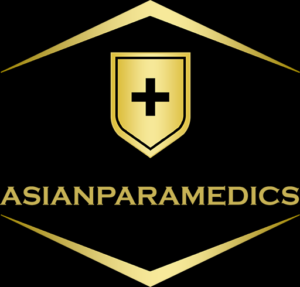Biology Multiple Choice Questions
- Members of the same species which are capable of interbreeding is best described as a (n):
- a) Community
- b) Population ✅
- c) Ecosystem
- d) Biosphere
- e) intron
- Which of the following factors is most likely to contribute to gene flow between populations?
- a) Migration ✅
- b) Natural selection
- c) Genetic drift
- d) Mutation
- XisT would be expected to play a role in the spreading phase of X inactivation.
- a) True
- b) False (XisT is more likely to play a role in initiation) ✅
- Which of the following conditions is caused by “trisomy 21”?
- a) Down Syndrome ✅
- b) Turner Syndrome
- c) Cystic Fibrosis
- d) Phenylketonuria
- Women with X-linked disorders always pass the genes for the disorder to ______, while men with X-linked disorders always pass the genes for the disorder to _______.
- a) only their daughters; only their daughters
- b) both their daughters and sons; only their sons
- c) both their daughters and sons; only their daughters ✅
- d) both their daughters and sons; their daughters and sons
- e) their sons, their daughters
- In chromosome mapping, one map unit represents
- a) The distance between one gene and the next on a chromosome.
- b) 1% crossing over between two sites on a chromosome. ✅
- c) 1% of the length of the chromosome.
- d) 10% crossing over between two sites on a chromosome.
- e) 10% of the length of the chromosome.
- Which refers to turning a chromosome segment around 180º and rejoining it to the original chromosome?
- a) inversion ✅
- b) translocation
- c) deletion
- d) duplication
- e) monosomy
- An individual with the genotype XXY would have ________ chromosomes and phenotypically would be a ________
- a) 47, male
- b) 46, male
- c) 47, female
- d) 46, female ✅
- The heavier strand of mitochondrial DNA contains __________ polypeptide genes.
- a) 12
- b) 14
- c) 11
- d) 13 ✅
- Which pattern of inheritance the one likely describes, Males only affected, Females carriers, diagonal pattern, no male to male transmission.
- a) X-linked Recessive inheritance ✅
- b) X-linked dominant inheritance
- c) Autosomal recessive
- d) Autosomal Dominant
- e) Mitochondrial inheritance
- Which pattern of inheritance this picture mostly likely illustrate?
- a) X-linked Recessive
- b) X-linked Dominant
- c) Mitochondrial inheritance
- d) Autosomal Recessive
- e) Autosomal Dominant ✅
- What best describes microsatellites:
- a) Areas of genomic instability
- b) Tandem repeats of up to six base pairs ✅
- c) RFLPs
- d) None of the above
- The effects of genetic drift are most apparent in small populations
- a) True ✅
- Those mutations that occur by environmental damage or mistakes during DNA replications are
- a) Acquired mutations ✅
- b) Inherited mutations
- c) A and B
- d) None of them
- Proto-oncogene in normal cells
- a) Code for proteins involved in the stimulus of cell division ✅
- b) Suppresses progression through the cell cycle in response to DNA damage
- c) Initiates apoptosis
- d) None of the above
- During cell division there are three types of check points one of them (M checkpoint) to ensure
- a) Chromosomes are attached to the spindle ✅
- b) Complete DNA replication
- c) DNA not damage or broken
- d) All of the above
- Those cancers that derived from ectoderm or endoderm of epithelial cell are called
- a) Carcinoma ✅
- b) Sarcoma
- c) Leukaemia
- d) Myeloid
- e) None of these
- ______ is a genetic change that occur in more than 1 percent of the population
- a) Polymorphisms ✅
- b) Monotheism
- c) Frameshift mutation
- A heritable feature is a ______ and may have two or more variants called______.
- a) trait/characteristics
- b) character/traits
- c) character/factors
- d) trait/factors ✅
- Fluorescent in situ hybridization is used for all of the following except for:
- a) Gene amplification ✅
- b) Subtelomeric deletion
- c) Trisomy
- d) Supernumerary marker chromosomes
- e) Reciprocal translocation
- “Gain-of-function” mutations are almost always dominant.
- a) True ✅
- b) False
- All of the following are molecular marker except for;
- a) Restriction fragment Length Polymorphism (RFLPS)
- b) Single Nucleotide Polymorphisms (SNPS)
- c) Polymerase Chain Reaction (PCR) ✅
- d) Microsatellite DNA
- Exon skipping is associated with:
- a) Non-sense mutations
- b) Regulatory mutations
- c) RNA processing mutations ✅
- d) Silent mutations
- Repeat core sequences consisting of 2, 3, or 4 base pairs are known as what?
- a) Single nucleotide polymorphisms (SNPS)
- b) Microsatellites ✅
- c) Minisatellites
- d) Satellites
- Which of the following is not true about codons;
- a) Non overlapping
- b) Redundant
- c) Four stop codons ✅
- d) Almost Universal
- Proto-oncogene in normal cells
- a) Code for proteins involved in the stimulus of cell division ✅
- b) Suppresses progression through the cell cycle in response to DNA damage
- c) Initiates apoptosis
- d) None of the above
- All of the cells within an individual are genetically identical.
- a) True
- b) False ✅

